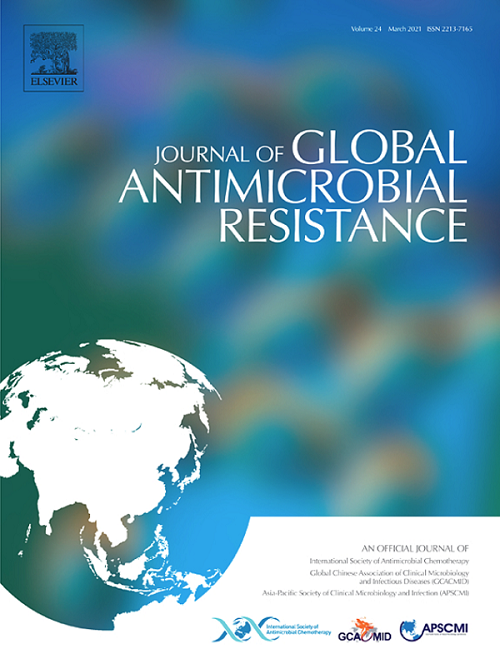Prolonged Infusions of Meropenem in Pediatric Infections with Carbapenem Resistant Gram Negative Bacteria
IF 3.7
3区 医学
Q2 INFECTIOUS DISEASES
引用次数: 0
Abstract
In many pediatric wards, infections caused by GNB are increasingly resulting in significant morbidity and mortality. For the infections with CR-GNB, a choice of treatment in children is prolonged infusions of carbapenem, particularly the meropenem. To assess the effectiveness of prolonged meropenem infusion (PMI) in children with carbapenem resistant (CR) Gram negative bacteria (GNB) infections.
The present study included pediatric patients between 1 month and 18 years of age who were hospitalised and presented with bacteremia with a positive blood culture with CR-GNB. We analysed the causative microorganism, susceptibility profile, the antimicrobials used in combination with PMI. Outcome measures were negative blood culture 14-day and 30-day mortality, and recurrence of infection in 14 days of completion of treatment.
Between Jun 2022 and July 2024, a total of 19 (10 male, 9 female) children with 26 infections were recorded. The most common underlying disease was hemato-oncological disease, followed by chronic lung disease. Among the causative microorganisms, n=16 (61%) {Klebsiella} spp, n=7 (27%) {Pseudomonas} spp., n=1 (3.8%) {Ochromobacter} spp, n=1 (3.8%) {E. coli } were detected. Three infections recurred in the 14 days of completion of treatment. Seven (36.8%) patients died within 14 days of infection. Four of the patients who died had bone marrow transplant, one had chronic pulmonary disease, one with renal transplantation, and one had operated congenital heart effect.
In pediatric infections with CR-GNB, PMI in combination with other GNB-active agents may be a reasonable choice. The mortality is closely related to the underlying disease and immune status.
求助全文
约1分钟内获得全文
求助全文
来源期刊

Journal of global antimicrobial resistance
INFECTIOUS DISEASES-PHARMACOLOGY & PHARMACY
CiteScore
8.70
自引率
2.20%
发文量
285
审稿时长
34 weeks
期刊介绍:
The Journal of Global Antimicrobial Resistance (JGAR) is a quarterly online journal run by an international Editorial Board that focuses on the global spread of antibiotic-resistant microbes.
JGAR is a dedicated journal for all professionals working in research, health care, the environment and animal infection control, aiming to track the resistance threat worldwide and provides a single voice devoted to antimicrobial resistance (AMR).
Featuring peer-reviewed and up to date research articles, reviews, short notes and hot topics JGAR covers the key topics related to antibacterial, antiviral, antifungal and antiparasitic resistance.
 求助内容:
求助内容: 应助结果提醒方式:
应助结果提醒方式:


